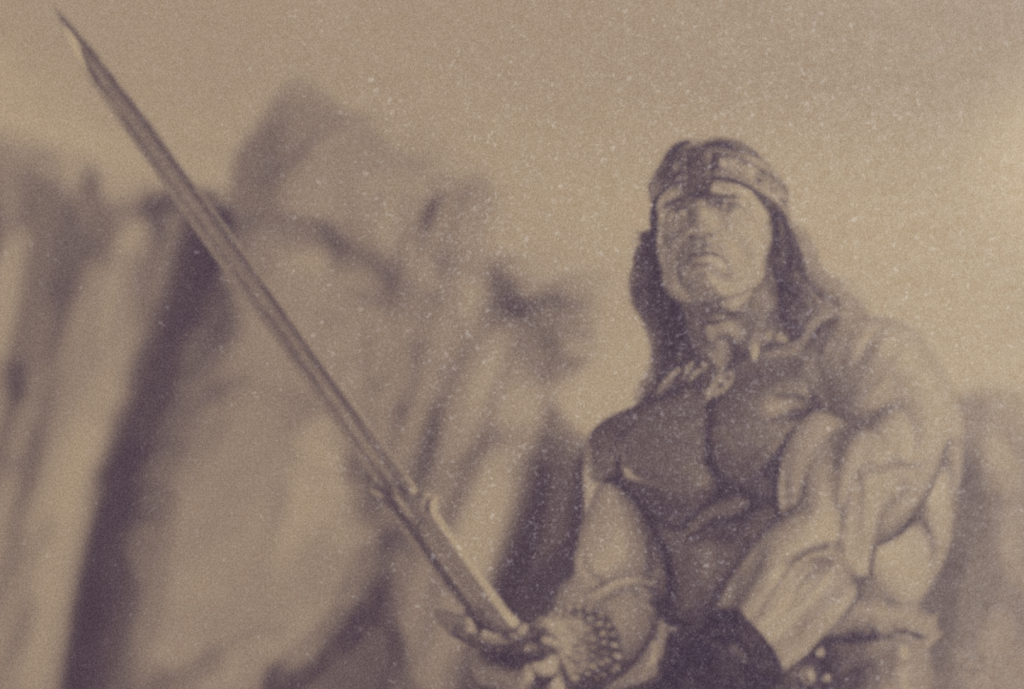

What happens when a post-Christian society begets post-Christian Christianity?
I once thought I knew how post-Christianity in America was going to play out. Even as a teenager, I understood that I lived in a culture that was shedding its moral, institutional, and symbolic deference to Christianity. By almost every measure, the nation throughout my lifetime has grown more diverse, more secular, and more resistant to biblical norms and boundaries. There has been little doubt that we’ve all been hurtling toward life within a post-Christian society.
Prophets of post-Christianity in my younger days were never hard to find. A steady parade of increasingly fretful jeremiads streamed through evangelical media during the 1970s and 1980s, warning of moral degradation, declining family values, the coarsening of pop culture content, and the systematic removal of God from public life. These prophets offered cautionary tales of the hellscape that post-Christianity would bring, but they didn’t describe it as inevitable. Most used their foreboding predictions as occasions to call the nation to repentance and revival. We must restore America’s godly heritage!
By the time I entered adulthood in the early 1990s, I was generally inoculated against the often overheated “Take America back for God” rhetoric. I was mercifully surrounded by thoughtful Christians who taught me to read the world and the story of America with greater care and nuance. I also sought and found an alternate band of prognosticators who, while confirming Christianity’s diminishing status, invited the faithful to interpret and respond to this fact in a radically different way.
Writers like Stanley Hauerwas, Will Willimon, and Lesslie Newbigin agreed that post-Christianity was coming, but they thought it was better framed as post-Christendom. Instead of lamenting its declining influence, these writers wondered whether Christianity should have been wed to cultural and political power in the first place. The fourth-century Roman Emperor Constantine first imbued Christianity with a civil authority we can now more clearly recognize as corrupt and corrupting: “In this Sign Thou Shalt Conquer!” Hauerwas and company urged believers to embrace post-Christianity as an opportunity for renewal in the church and an occasion to recenter our loyalties—to forsake our misplaced nostalgia for “power” and “influence” and to rediscover the way of the Cross.
In saying that I once thought I knew how post-Christianity was going to unfold, I was recalling the Hauerwasian narrative: The West grows progressively more hostile to Christianity. Believers experience increased friction in their navigation of the world. The social and political advantages of identifying with Christianity gradually evaporate. Christian believers move to the margins of society, as do efforts to use Christianity to advance dubious political schemes. Only those who authentically wish to bear the cross of Christ—which becomes again what it once was: a scandal—will actively bear the name “Christian.” Why would anyone else bother? In this setting, believers relearn the biblical lesson of walking as “strangers and exiles on the earth. . . . For here we have no lasting city, but we seek the city that is to come” (Hebrews 11:13, 13:14).
This version of post-Christianity resembles the world of first-century Palestine, in which small bands of embattled believers confidently proclaimed the gospel of Jesus under the gaze of a hostile, powerful global empire. “Consider it pure joy, my brothers and sisters, whenever you face trials of many kinds,” the Apostle Paul reminded them, “because you know that the testing of your faith produces perseverance.” The pre-Constantinian Scriptures would take on fresh relevance for post-Constantinian believers.
I was wrong about what was unfolding, of course. And perhaps foolishly so. Post-Christianity has indeed come, but its impact on American believers looks drastically different from the visions of faithfulness I mused about in my Hauerwasian fantasies. I underestimated the “Take America back for God” prophets, credulously assuming they were a dying breed who would be gradually replaced by younger, sober-minded Christian realists. A hunger for taking-America-back-for-God while Making-America-Great-Again has risen sharply among many angry young (primarily male) Christians. This crowd is hardly finished with social power or political relevance, it turns out. In fact, they will do virtually anything to secure it, including an abdication of the teachings of Jesus itself.
MAGAfied post-Christianity offers an upside-down, photo-negative version of what I once imagined American Christianity might become. Rather than a chastened faith, drained of social power but instilled with a deeper capacity to follow Jesus, we are witnessing a rising brand of “Christianity” that venerates chest-thumping power, revels in vengeance, celebrates boastfulness, winks at racism, dismisses responsibilities for widows and orphans, unleashes terror on strangers and foreigners, and turns blind eyes to deception, corruption, and cruelty. It not only fails to give even lip service to the “soft” but central virtues of the New Testament Gospels (compassion, humility, cheek-turning, meekness, enemy-love), but it seems actively scornful toward all of them.
In a moment of candor, Theodore Roosevelt once warned that Americans needed to forsake “weak and effeminate” ideals if they hoped to maintain their momentum as a rising world power. “Unless we keep the barbarian virtues,” he insisted, “gaining the civilized ones will be of little avail.” While rarely this reflective, MAGA Christianity seems equally devoted to keeping “the barbarian virtues”—things like retribution, hostility, and brutishness—at the center of its aspirations, and to code other patently biblical ones, like patience, gentleness, kindness, and self-control as weak, effeminate, and shameful.
In short, this age of Trumpian Christianity has managed to expunge the faith of Jesus’s core teachings, replacing them with a complement of will-to-power values so foreign to those of traditional Christianity that Friedrich Nietzsche himself might have been persuaded to identify as a “cultural Christian.” It is these bellicose virtues that Trump intends to safeguard through his recent, laughable promise to “protect Christianity,” and the believers who cheer him on are willfully consenting to this savage mutilation of the faith.
The post-Christian society we’ve long anticipated has arrived, and in force. But its triumph isn’t the result of the overt secularism espoused by Christianity’s cultured despisers, who ultimately retained a great many more latent biblical convictions than even they probably realized. No, post-Christianity marched right in the front door, and did so in the name of a muscular warlike Jesus ready to kick ass and take names.
Most of us were prepared for a post-Christian society. Far fewer were ready for post-Christian Christianity and its untold and still unfolding tragedies. God help us all.
Jay Green is Professor of History at Covenant College. His books include Christian Historiography: Five Rival Versions and Confessing History: Explorations of Christian Faith and the Historian’s Vocation (edited with John Fea and Eric Miller). He is Senior Editor of Current.
Turns out that American culture is not post-Christendom after all, but a curdled form of Christendom that makes Charlemagne, say, or the British Empire look positively beneficent by comparison. (Even Constantine himself looks pretty good compared to King Donald.)
Compare the situation up here in post-Christendom and post-Christian Canada: British secularity without even the vestiges of official religion, even as the religiously tatterdemalion King Charles III puts paid to the idea once for all of the British monarch as Defender of the (Christian) Faith.
Thanks, then, Professor Green, for this poignant correction of the prognostications of where America was heading in the 1970s. The Late, Great Country of America has become this surreal grotesquerie, which precisely no one predicted, even as, we historians will say, the seeds and signs were there.
That was awesome.
Thank you, Jay, for your essay. Hauerwas also played a big role in my thinking as a young faculty member, especially (alongside Ellul, Marva Dawn and Bonhoeffer) about the Cross. But when I think of him as a Christian ethicist, I understand the subject from a different angle. The various versions of Christendom have over time relied on convictions that the Christian faith, the Good News, includes an ethical system and (with some exceptions such as the peace Anabaptists) a program of moral improvement applicable beyond the church. These versions harnessed accounts of the natural law tradition to certain readings of Scripture. I eventually realized that one of my attractions to “Enlightenment” critics of the Church/State nexus was their resistance to subscribing to the Church’s role as society’s pedagogue. I had different reasons for resisting it: I don’t find in Jesus’ portrait of the Kingdom and its Good News a program of ethics, justice and fairness easily mapped onto the programs we, for good reasons, create. Teaching at Christian colleges like ours I eventually learned (helped by the work of Molly Worthen and Adam Laats) that for all our sincerely joyous purposes creating and sustaining the Christian liberal arts, many of our schools have been founded and maintained as outposts of various kinds of Christian moral formation in the Western secular wilderness. This recent post-liberal post-Christendom Christianity feels like the retuning of the older instrument to a very old (older even than Roosevelt) American ideology of providential nationalism. (BTW, that recent photo of you above really caught your good side).